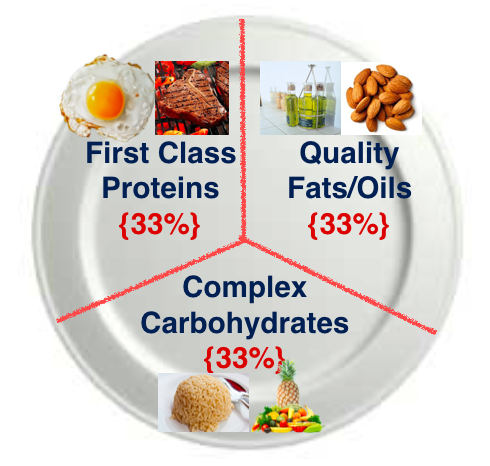The Isocaloric Muscle Building Diet Program
Here I'm going to show you how to create another type of muscle building diet. This diet system is called the Isocaloric muscle building diet program. Iso is derived from Greek and simply means equal.
For this particular diet system it signifies that total calories must be divided equally between the three macronutrients.
Before we get started use the Harris-Benedict equation below to establish your energy requirements.
The Harris-Benedict Equation - (This only estimates your energy requirement in a resting state)
Men
BMR = 66.473 + (13.7516 x weight in kg) + (5.0033 x height in cm) - (6.7550 x age in years)
Women
BMR = 655.0955 + (9.5634 x weight in kg) + (1.8496 x height in cm) - (4.6756 x age in years)
When you have your Basal Metabolic Rate (BMR) multiply it with your level of exercise activity.
Little to no exercise
BMR x 1.2
Light exercise
BMR x 1.375
Moderate exercise
BMR x 1.55
Heavy exercise
BMR x 1.725
Very heavy exercise
BMR x 1.9
Total Kcal = BMR x Exercise level
Please, remember the initial calculation is simply a starting point. Every week you should make adjustments. You simply increase or decrease your total calorie intake in increments of 5-10% accordingly to how your body responds.
Once you know your energy requirements to either maintain, lose or gain weight, depending on your objective, you need to divide your calories into the three macronutrients; protein, carbohydrate and fat.
Since we are using the isocaloric diet plan we are going to divide protein, carbohydrate and fat in three equal portions. This means that 1/3 of the total energy will come from protein. 1/3 of total energy will come from carbohydrates. And finally the remaining 1/3 of energy will come from fat.
Here are the formulas:
Protein g = Total Kcal / 3 / 4
Carbohydrate g = Total Kcal / 3 / 4
Fat g = Total Kcal / 3 / 9For this example lets assume that your daily calorie requirement is 2000 Kcal. As a result, your macronutrients intake amounts to the following:
(Rounded up/down to nearest integer)
2000 * 0.33 / 4 = 167g protein
2000 * 0.33 / 4 = 167g carbohydrate
2000 * 0.33 / 9 = 74g fat
Click Here to Sign Up for Your Free Bodybuilding Magazine Subscription

